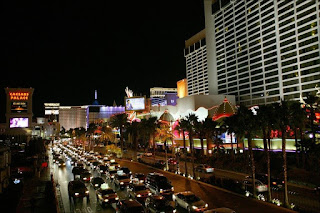
Imagine with me for a minute. Somewhere in America, in a town that is big, yet small at the same time, there is a church community. At first glance, there is nothing incredibly unique about this community. They meet together on Sundays, they have a diverse group of people, and most of them spend a good deal of their week either at work or with their families. But on closer inspection, you begin to notice a few things. You begin to notice that the people genuinely love each other, and do so during the whole week, not just on Sundays. You notice that they don’t spend a lot of time in “church”, but out in their community, just being a part of it. You notice that, even in the midst of hard financial times, no one among them is wanting for the basic necessities. You notice that they do their best to love their neighbors, both their literal neighbors, as well the Jesus definition of neighbor (which includes, well, everyone). You notice that, because of many of the things above, that people in their community that have no connection to the church look favorably on the church community, whether or not they call themselves “Christians” or even religious, and some also begin to hang out, recognizing that something really good is going on within the community, and they want to be a part of that. You also notice, maybe most amazingly, that these are not crazy people in some fanatical commune, but people with relatively normal lives, families, jobs, and lifestyles.
This imagined idea of a church community grew in me as I thought about the small yet powerful section in Acts 2:42-47. Here (as well as elsewhere in Acts and the letters of Paul) we get a vision of the early church community, a vision that is still powerful today because of the reality of the Gospel. As people who desire to live out this gospel that Jesus left us, how do we go about it, especially when it seems that the church as a whole seems to fight and squabble about it? Jesus, when he departed, did not leave a handbook on how to structure the church community, nor did he leave a “to-do” list. What he left was the Gospel, a way of living within the Kingdom of God, which he himself had lived out among them. He also left his Spirit to guide the church. I think it is beautiful that the early church community was not an institution that was left by Jesus, but a community of people empowered by both the Gospel vision of Jesus and the power of the Holy Spirit. With these two things, they were able to imagine and dream and live out the Gospel in a mighty and powerful way.
Now, some have argued that the church today must get back to the early church model, and do everything just like they did. The church today has gone too far away from this, they say, and in order for the church to survive, we must do exactly what the church in Acts was doing. I do agree that the church today does need to rethink some of its practices and beliefs, and that there are certain things that would do good to change. However, I also recognize that we live in a different time then the people in the book of Acts, and have completely different lifestyles and worldviews then they did. In this way, I feel that the book of Acts is not a manual for how to do church, but rather a glimpse into a beautiful, Spirit-filled community of the first century that is figuring out how to live out the Gospel with which they have been given within their communities. Thus we can read the book of Acts as a beautiful, true, and powerful story about the growth of the church, and rather than follow it word for word, use it to re-imagine what that same thing might look like in our own day.
So what might this look like in regards to Acts 2:42-47? Let us briefly begin a walk through this narrative, and re-imagine how the truth and beauty of this story might guide us today and we re-imagine how to live the Gospel of Jesus out in our world and in our church communities, using the first verse from this narrative:
“They devoted themselves to the apostles' teaching and to the fellowship, to the breaking of bread and to prayer”
This really shows that the church was all about four things: Learning together, being together, eating together, and praying together. First, they were willing to sit under the apostles and learn together. They recognized that there were those within their community that had been with Jesus and had learned a bunch through those experiences, and wanted to learn from them. Today, we don’t exactly have anyone that walked on this earth with Jesus, but we do have people in our communities, both those who have chosen to study and learn in order to serve the church, and those who have amazing experiences that are beautiful and transforming, who can serve the church through their instruction and teaching. At the same time, it is always important to remember that those who serve the church in this way are simply a part of the Body of Christ, and not somehow different or more important than those who feed their neighbors or serve with the kids ministry. Second, they devoted themselves to the fellowship, the church community. This was not a collective group of individuals that went and did their own thing, but a group with a community identity, that was devoted to each other. I think it is so important to re-imagine church at this point, because we live is a culture of rampant individualism. We have a tendency to be devoted to ourselves first, and our church communities second. It is so important that our church communities are not simply places we go on Sunday, but a group of people that is devoted to one another. This is much harder today, with our varied and scattered lives and jobs, but in is no less important, and something that we must fight for and learn how to do better. Third, they devoted themselves to the breaking of bread. They ate together. Something that was a normal part of their everyday lives (if they weren’t living in poverty) had now become an important part of their community. Church for them did not seem to be a service once a week, but connected even to the most regular daily activities. Re-imagining this for today, we might look at how we view church during our week. Is it something we “attend” once or twice a week, or is it something that is intimately connected to our everyday lives, even the most mundane parts? Eating together can be powerful, as it connects our physical sustenance with the Body of Christ. How might we re-imagine this in other ways today? Fourth, they prayed together. Prayer is also something that, for the most part, has been moved to the realm of the individual. Sure, we pray in church, but often it is quite short and repetitive. How might we re-imagine this? Let’s recognize the power that comes with communal prayer that comes out of a community seeking God. I am not sure how prayer works or affects God, and I am skeptical of anyone that says they do, but the biblical narrative, as well as my experience, say that people praying together can be powerful. I think an awesome way we can begin to re-imagine church is to recognize that the people of God praying as a Body can be so much more powerful than all of our models and formulas for how we can do church better.
I hope that this brief example was helping in explaining what I mean by re-imagine. I know that it was not complete in every way, and that much more might be said about many of the things that came up in that first verse regarding how we do church. Some might even say that I went too far with some of what I said, wondering were I got some of the things I was talking about, as they clearly were not in that verse, or even in Acts. That all brings us back to what I was saying before. I think it is so important to view Acts not as a formula to follow or a checklist to accomplish, but as a story of people who experience God in a powerful way and, with the powerful of the Holy Spirit, went about living in that reality. And through this story, those of us in the Body of Christ today can learn from the beautiful, messy story in Acts to re-imagine how we might live as the church today. This is not going to be easy. Yet, as people empowered with the gospel and living in our crazy and awesome world, it is so important.









